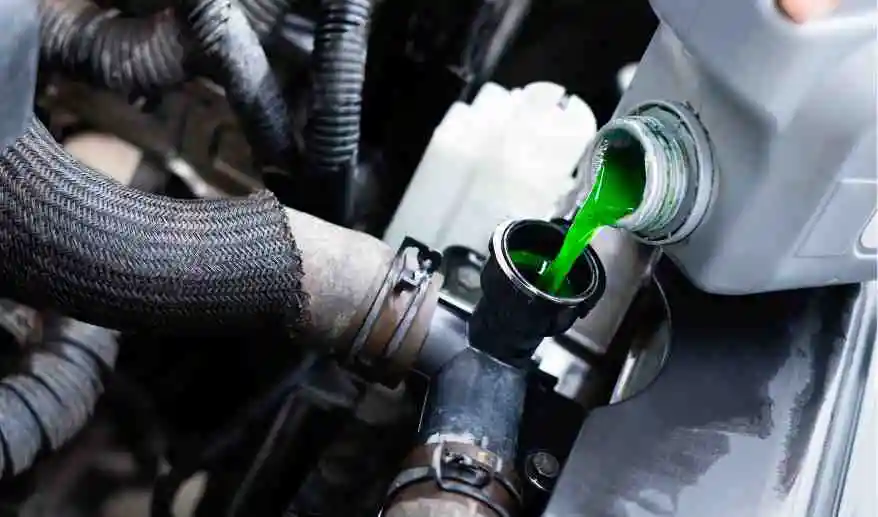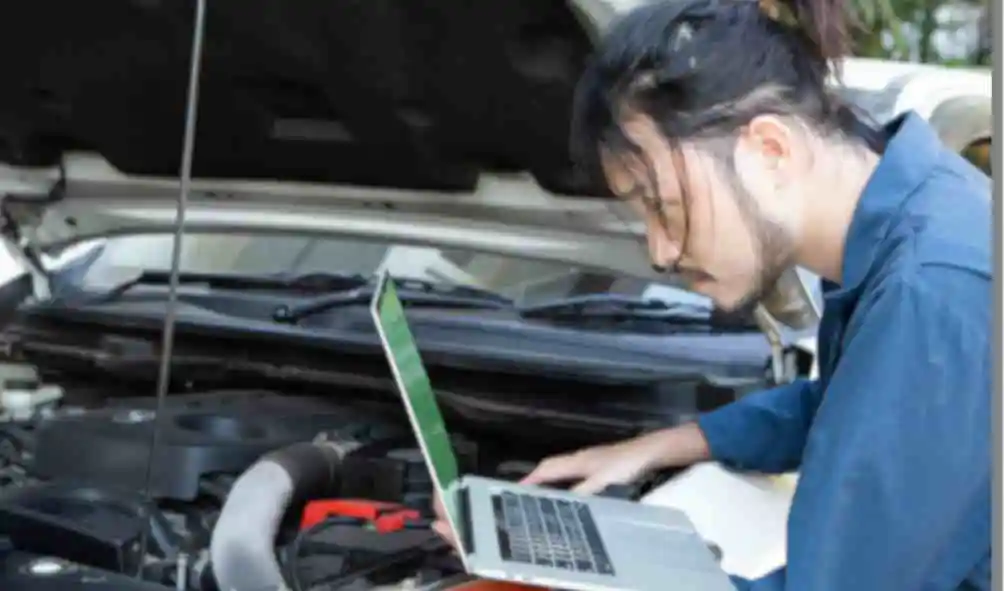Why Is My Car Going Through Coolant So Fast?
If you’re reading this post, you probably wonder why your car is going through coolant quickly. Coolant, also known as antifreeze, is an essential component of your car’s cooling system, which helps regulate the engine’s temperature and prevent it from overheating.
In this article, we’ll explore why your car may be consuming coolant too fast and what you can do to fix the issue, so we invite you to stick around until the end to find out what you’ve been looking for.
Reasons Why Your Car Is Going Through Coolant So Fast?
According to my experience of repairing vehicles throughout my life, I’ve identified the possible causes for this problem, and the following are those causes.
Faulty thermostat.
One of the most common reasons why your car may be going through coolant too fast is a faulty thermostat.
A thermostat helps regulate the engine temperature by opening and closing the coolant flow. If the thermostat is faulty, it may cause the engine to run too hot, leading to increased coolant consumption.
Coolant leaks
Another reason could be coolant leaks. Coolant leaks can happen in various parts of your car, such as the radiator, hoses, water pump, or head gasket.
These leaks can cause a loss of coolant over time, resulting in your car consuming more coolant than usual.
Internal engine problems
Internal engine problems such as a cracked engine block or cylinder head can also cause coolant to seep into the engine oil or the combustion chamber, leading to faster coolant loss.
Additionally, driving your car under extreme conditions, such as high temperatures or heavy loads, can cause it to overheat and consume more coolant.
How To Check For Coolant Loss?
Now that we’ve explored the possible reasons why your car may be consuming coolant too fast, it’s essential to know how to check for coolant loss.
Checking for coolant loss is relatively simple, and you can do it by yourself. You can start by checking the coolant level in your car’s reservoir tank. If the level is lower than it should be, you may have a coolant leak.
Another way to check for coolant loss is to inspect the engine for leaks. Look for any signs of wetness or stains on the hoses, water pump, or radiator. Lastly, you can monitor your car’s temperature gauge. If the gauge shows your car is running hotter than usual, it could be an indicator of coolant loss.
Where is the leaking coolant going?
When your car is losing coolant, it’s important to know where the coolant is going. If you can’t find any visible signs of a coolant leak, such as puddles under the car or wet stains on the engine, then it’s possible that the coolant is being burned off in the engine or leaking into the engine oil.
If the coolant is leaking into the engine oil, it can cause the oil to become milky and reduce its lubricating properties, which can damage the engine’s internal components. This serious issue should be addressed immediately to prevent further engine damage.
Alternatively, if the coolant is being burned off in the engine, it can create white smoke from the exhaust and a sweet smell. This can be a sign of a blown head gasket, which can also cause the engine to overheat and damage the internal components.
In either case, it’s crucial to promptly address the coolant loss issue to prevent further engine damage. Seek professional help if you’re unsure about where the coolant is going or how to fix the problem.
How To Fix The Issue?

The solution to fixing the coolant loss problem depends on the cause of the issue. If a faulty thermostat is the culprit, it may need to be replaced.
If you have a coolant leak, you may need to fix or replace the damaged part. Internal engine problems such as a cracked engine block or cylinder head can be costly to fix and may require professional help.
Additionally, here are some other steps you can take to fix the issue:
Check the radiator cap
A faulty radiator cap can cause the coolant to evaporate faster, leading to coolant loss. Check if the radiator cap is damaged or loose, and replace it if necessary.
Use the right coolant.
Using the wrong type of coolant or mixing different types can cause chemical reactions that can damage your car’s cooling system. Check your car’s manual to ensure you’re using the right type of coolant for your car.
Bleed the air from the cooling system.
Air pockets in the cooling system can prevent the coolant from circulating properly, causing the engine to overheat and consume more coolant. You can bleed the air by following your car’s manual instructions or seeking professional help.
Conclusion
In conclusion, if your car is going through coolant too fast, it could be due to various reasons such as a faulty thermostat, coolant leaks, internal engine problems, or extreme driving conditions. It’s crucial to check for coolant loss regularly and address the issue promptly to prevent further damage to your car’s engine.
Remember to seek professional help if needed, and maintain your car’s cooling system through regular maintenance to prevent future coolant loss problems.
Is it safe to drive my car if it’s losing coolant?
No, driving your car is unsafe if it’s losing coolant. Coolant is essential for regulating the engine’s temperature, and driving without enough coolant can cause the engine to overheat and lead to costly repairs.
Can I use water instead of coolant in my car?
Using water instead of coolant in your car’s cooling system is not recommended. Coolant is specifically designed to regulate the engine’s temperature and prevent it from freezing or boiling, and using water can cause damage to the cooling system and engine.
How often should I check my car’s coolant level?
You should check your car’s coolant level regularly, ideally once a month. This can help you catch any coolant loss issues early and prevent further engine damage.
How much does it cost to fix a coolant leak in a car?
The cost of fixing a coolant leak in a car can vary depending on the cause of the leak and the make and model of the car. It can range from a few hundred to several thousand dollars. It’s best to get an estimate from a professional mechanic.
Can I fix a coolant leak myself?
It depends on the cause of the coolant leak. If it’s a minor issue such as a loose hose clamp, you may be able to fix it yourself. However, if it’s a more serious issue such as a cracked engine block or head gasket, it’s best to seek professional help to avoid causing further damage to the engine.
Can a coolant leak cause my car to fail emissions tests?

Yes, a coolant leak can cause your car to fail emissions tests. When coolant is burned off in the engine, it can create white smoke from the exhaust, which can increase the emissions and cause your car to fail the test.






